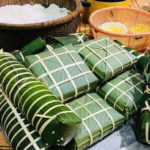Food safety is a critical issue, and according to statistics from the WHO, one in ten people suffer from food poisoning each year, ranging from mild to severe cases. Therefore, choosing fresh, clean, and high-quality food for our daily meals is of utmost importance. Here are some tips on how to identify common and popular foods we consume daily. Let’s explore and don’t forget to take notes!
1 Bread
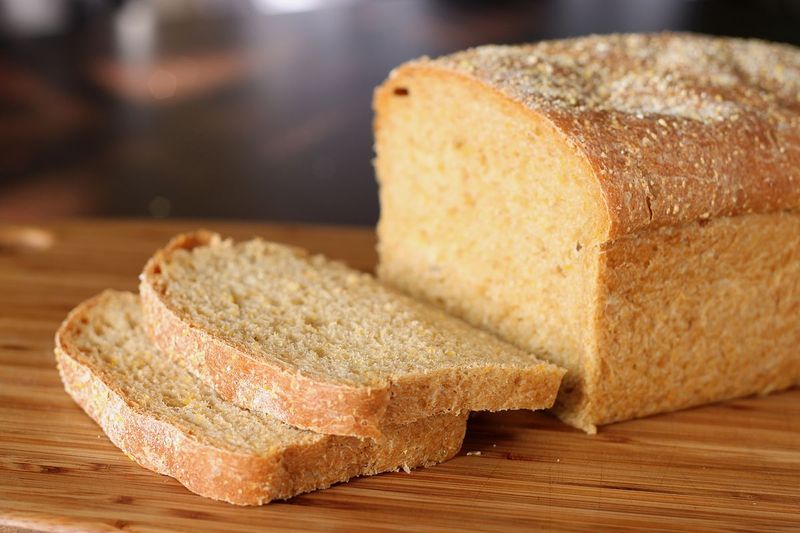
Fresh bread is soft, fluffy, and moist, unlike stale bread that has become dry and moldy, with green or white spots, indicating it has been sitting for too long.
2 Eggs
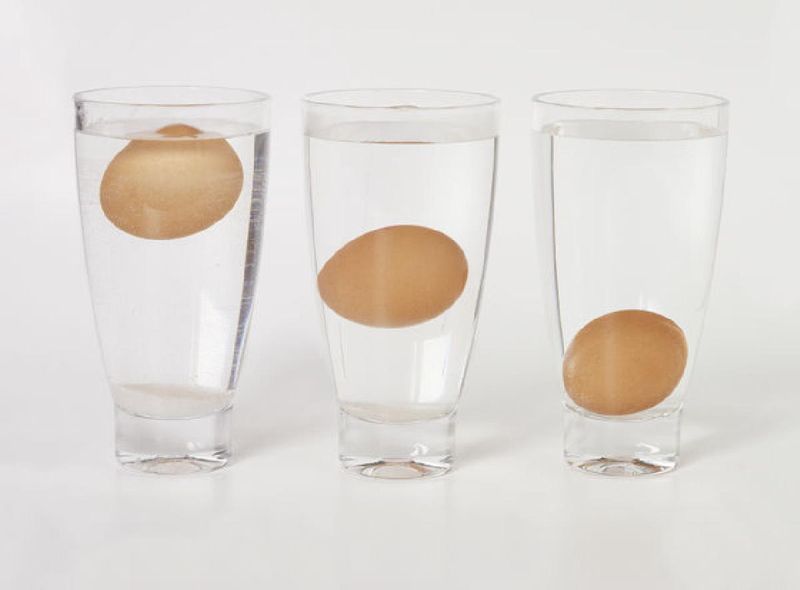
Eggs are best used within four weeks from the packaging date, but to be sure, perform a simple test by placing them in a glass of water. Fresh eggs will sink to the bottom, slightly older but still usable eggs will float, and eggs that float to the surface should be discarded as they are too old and unsafe to consume.
3 Butter
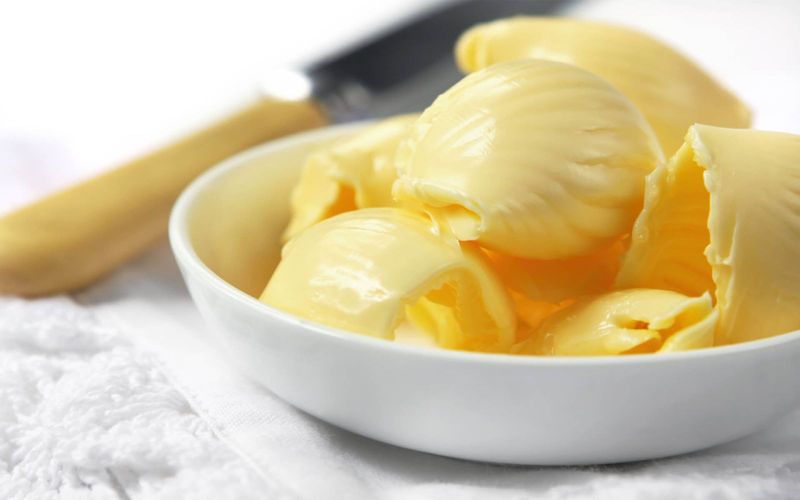
Butter typically has a long shelf life, up to four months when stored in the refrigerator. However, before using it, pay attention to its color and smell. Good butter will be bright yellow, creamy, sweet, and fragrant, whereas spoiled butter will be sour, watery, and have an unpleasant odor.
4 Canned Foods
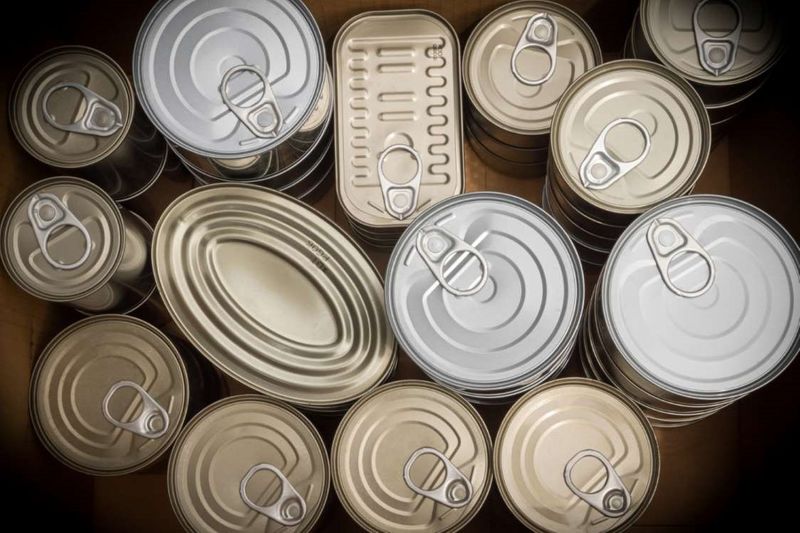
To ensure the safety of canned foods, always inspect the cans for any damage or rust and check the expiration date. A bulging can is a dangerous sign, indicating the presence of Clostridium botulinum, a potentially fatal bacterium that releases gases and causes the can to swell.
5 Chicken
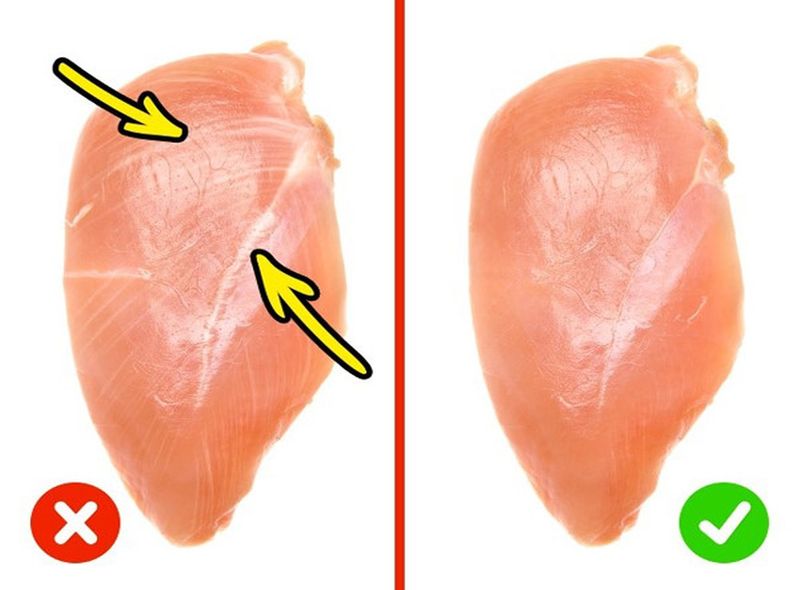
Chicken is a versatile and nutritious ingredient, but it’s essential to check its freshness before cooking. Fresh chicken meat will be springy to the touch and have a vibrant pink color. If the meat turns yellowish and becomes soft, it’s a sign that it’s no longer fresh. Another indicator of spoilage is a burnt smell and a slimy texture during cooking.
6 Seafood
Seafood is an excellent source of iron and protein, but consuming spoiled seafood can lead to severe health issues. When it comes to shellfish like clams, scallops, and mussels, discard them if they don’t open during cooking. Additionally, a foul smell and a dark color are signs of spoilage.
7 Fish

To determine the freshness of fish, examine its eyes, gills, and scales. Fresh fish will have clear eyes, bright red gills, and scales that are challenging to remove.
8 Honey
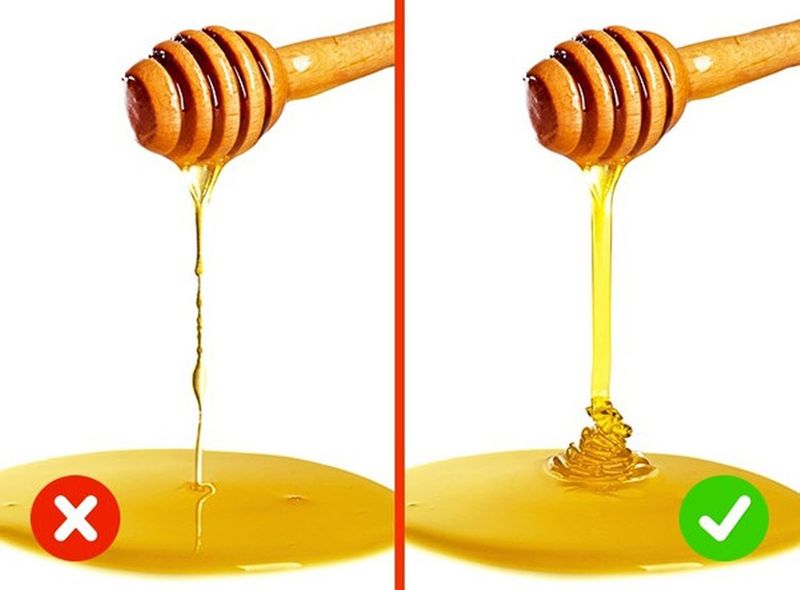
Honey is a valuable natural product with numerous health benefits, but due to its high price and demand, fake honey is prevalent in the market. To test honey’s authenticity, place a few drops in a glass of water; if it dissolves immediately, it’s likely fake as pure honey will sink to the bottom. Additionally, pure honey will be thick and creamy, with a mild sweetness, unlike adulterated honey, which will be watery and overly sweet.
We hope that these tips will help you make informed choices when selecting fresh and nutritious foods for your family’s meals. Stay safe and enjoy your culinary adventures!
8 Common Mistakes People Make with Cutting Boards
Are you using your cutting board correctly? Many Vietnamese households rely on cutting boards in their kitchen, but not everyone knows how to use them properly, especially when it comes to wooden cutting boards. Check out these 8 mistakes to avoid when using a cutting board to ensure both hygiene and safety for everyone in your family.
Is Refrigerated Leftovers Linked to an Increased Risk of Cancer?
Dr. Lam Van Man, Head of Research, Development and Technology Transfer Department of the Institute of Safety Food, has warned of the risk of food poisoning when reheating leftovers from the refrigerator. But what should we be aware of when it comes to the possibility of these leftovers causing cancer? Here, we explore what the experts have to say on the matter and offer some tips for safe eating.
Preserving Leftover Food from the Tet Holiday
With the beginning of the Lunar New Year, many households are stocking up on food to celebrate the festive occasion. While keeping food in the refrigerator is convenient, it can also be harmful to users if not done correctly. We have compiled a few tips to help ensure food remains fresh and safe to consume during Tet.


























